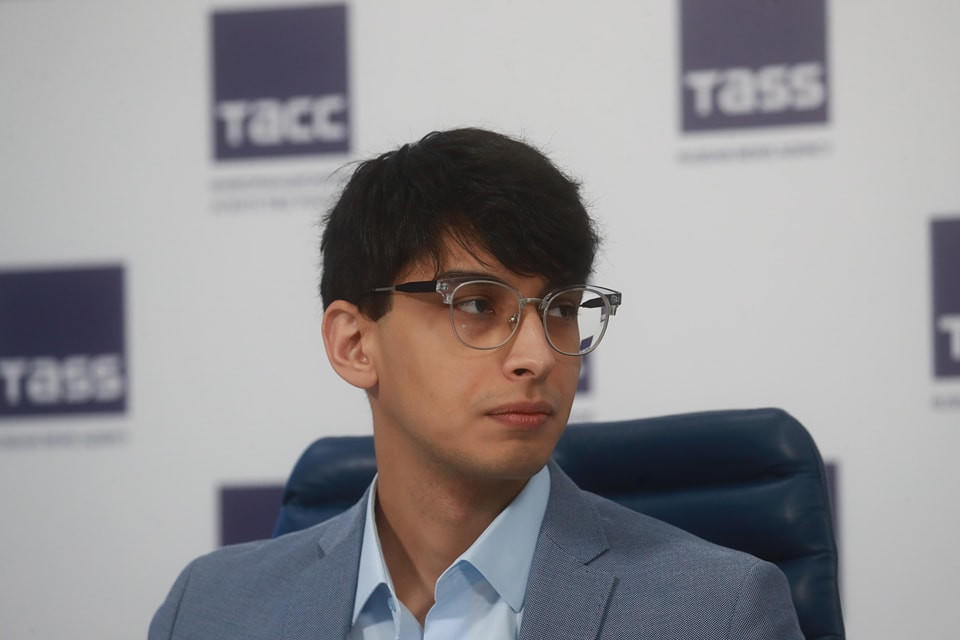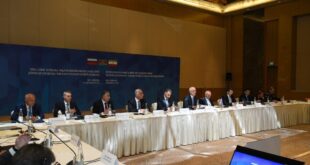
The decision about the implementation of a project of uniting the railways among Azerbaijan, Russia and Iran, voiced by Russia’s Energy Minister Alexander Novak at the 15th meeting of the Joint Commission on Economic and Trade Cooperation between Russia and Iran, is most likely connected with the construction of the Astara-Rasht-Qazvin railway, which is part of the International North–South Transport Corridor megaproject, Russian analyst at the Center for Political Information Ivan Pyatibratov told Trend.
He stressed that the agreement on the construction of the Astara-Rasht-Qazvin railway was concluded in 2005, so the issue concerns the additional agreements, rather than the launch of a new construction process.
“This statement was made at the Russian-Iranian meeting,” Pyatibratov said. “Presently, the only part of the Astara-Rasht-Qazvin railway, which has not yet been put into operation, is the Rasht-Astara section, which passes through Iran. Therefore, the parties were likely to conclude agreements on this section.”
“Perhaps, the issue concerns additional funding from the Russian Federation,” he said. “Iran is now in an extremely difficult geopolitical situation due to a conflict with the US, so additional funding will be useful. Earlier, Azerbaijan issued the loan for the same section. Moreover, the Azerbaijani side actively controls the construction of the Rasht-Astara segment, by attracting specialists and observers to the construction process.”
“Such attention to this project is natural,” Pyatibratov said.
“The Astara-Rasht-Qazvin railway is an integral part of the North-South corridor, therefore, the sooner this construction is over, the better,” he added. “This is mainly connected with the fact that the project itself is sometimes criticized because of the Astara-Rasht-Qazvin railway section. The different railway lines and a lack of the direct Iran-Russia flight during the development of the project caused skepticism in relation to the entire megaproject.
“The bonuses from the implementation of the Astara-Rasht-Qazvin project for the participating countries are obvious,” Pyatibratov said. “Russia is bringing the completion of the construction of the North-South corridor closer, which strengthens its geopolitical position and also increases Russia’s influence in the Middle East. Azerbaijan receives economic bonuses from a big number of financial flows focused on it, which simultaneously increases the country’s political status.”
“Through the trade flows, Iran will be able to improve its financial situation, as well as break out of isolation, into which the US plunged the country, not to mention the fact that such projects attract the investments in which Iran is in dire need,” he said.
In conclusion, the Russian analyst added that a traditional meeting of the leaders of Russia, Azerbaijan and Iran will be held in Sochi in August, where, the North-South project and the process of its construction will be discussed.
The International North–South Transport Corridor is designed for the transportation of goods from India and the countries of the Persian Gulf to Russia, Western Europe, the Baltic and Scandinavia.
If cargo transportation by sea through the Persian Gulf, the Suez Canal, the Mediterranean Sea to Helsinki takes 45-60 days, the delivery time along the “North-South” corridor will take 20-25 days.
Azerbaijan, Iran and Russia signed an agreement in 2005 on the construction of 375 km long railway segments in Iran between Astara and the Azerbaijan-Iran border, and the reconstruction of an existing railway in Azerbaijan to develop transportation in this area.
The Astara-Rasht-Qazvin railway project envisages the construction of a new railway line in Iran, which will connect the Azerbaijani city of Astara to the Iranian cities of Astara, Rasht and Qazvin.
 Oval Useful news from Azerbaijan and Caucasus
Oval Useful news from Azerbaijan and Caucasus

